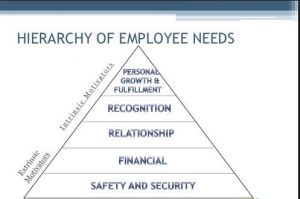Every year, the Wall Street Journal, New Yorker or some other reputable newspaper or magazine publishes an article touting the benefits of doing away with performance appraisals. Almost always, these articles are backed up by some study showing that performance appraisals either undermine the manager-employee relationship or are not proven to enhance performance.
Just this year, world-wide consulting firm Accenture decided to do away with performance appraisals for their 330,000 employees, saying they were “too costly” and didn’t demonstrate improved performance. However, Accenture still has a formal process; it’s just no longer an annual bell curve evaluation system, and it’s designed to give employees a more comprehensive review of their performance.
Most opponents of the performance appraisal argue that if managers are doing their job, they are having daily performance discussions with their direct reports. With this high-quality, ongoing feedback, formal performance reviews and discussion are no longer necessary. In theory, this is an awesome idea. If every manager was good at giving honest feedback on a daily basis, and every employee was highly motivated to change their behaviors based on this feedback, there wouldn’t be a need for formal performance appraisals.
Why do people dislike performance reviews so much?
- They take too much of everyone’s time.
- They give managers an excuse to avoid giving good, ongoing feedback and limit dealing with issues to once a year.
- They are too long, too formal, and too structured.
- They are too subjective.
- They are too quantifiable.
- HR’s contribution: Managers are uncomfortable with giving honest feedback. They give the employee a great review and then come to HR six months later wanting to fire the employee.
Poor managers and difficult employees bring life to each one of these challenges, and they are valid points in the argument against formal performance appraisals. But, here’s the biggest problem with nixing the process. The managers who dislike the process and are most supportive of eliminating it are the same managers who are lousy at giving their employees consistent, ongoing, honest, and high-quality feedback.
While we don’t recommend axing the formal performance review completely, there are ways to make the process more effective and less of a headache for managers and employees alike.
- Hold managers accountable for providing each employee with a comprehensive review of their performance.
- Set clear goals to guide the employee’s performance for the upcoming year.
- Support the process with ongoing, daily feedback.
- Managers should meet with the employees at least quarterly to review or update goals and development plans.
- Train managers and employees on how to effectively utilize the appraisal process.
- Rate each employee on competencies as well as objective goals.
- Specifically, rate managers on leadership competencies.
- Provide a competency dictionary so everyone understands the difference between a 3, 4 or 5 rating.
- Have growth plans in place for each employee so that your organization is continuously developing future leaders.
It doesn’t matter how well your formal performance appraisal process is thought out if it isn’t supported by ongoing, daily/weekly feedback. This is where real performance improvement and development takes place. If managers did a better job of providing ongoing feedback and documenting their discussions, the annual performance review would be much easier and faster. In terms of performance improvement, the annual review might not even be necessary.
As it stands, organizations still need a summary of employee performance to determine promotions, merit increases, bonuses, and provide documentation in case an employee needs to be “dehired” in the future.
What are your thoughts on the topic? Please share in the comments below!
Business & Finance Articles on Business 2 Community(26)





